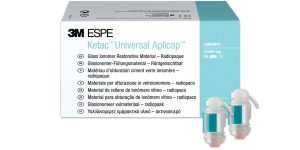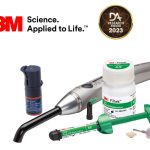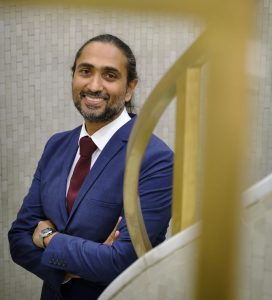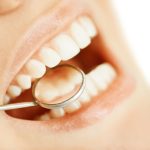Alongside many of the recent advancements made within dentistry – the finessing of materials, the development of technologies – there has also been a shift in mindset to preventative practises. More and more we are hearing about patients living in pain, unable to seek care. It is crucial that, before patients get to this stage, they are supported with information and advice that can reduce the risk of oral diseases. It is a gargantuan task – with an aging population, along with the caveats to modern life such as poor diet and nutrition, all individuals are at risk of developing oral health issues if the steps are not taken to mitigate them.
What your mouth says about you
A person’s oral health is a good indicator of their overall wellbeing – as a clinician, much can be ascertained from plaque build-up, inflamed gums, and tooth loss. Incidences of poor mineralisation and caries might represent a poor diet and nutrition;[i] while halitosis and bleeding gums represent poor oral hygiene habits. All of these complications can have numerous and bi-directional causes, and patients may express frustration at the condition of their teeth. There are many reasons why some patients are unable to properly maintain their oral cavity, whether due to their oral health literacy, poor childhood oral health, dental anxiety, past trauma or financial constraints.
As you know, the literature explains how oral health and systemic health are intrinsically linked.[ii]Periodontitis, in particular, has been linked with Alzheimer’s disease, obesity, eating disorders, diabetes, liver disease, cardiovascular disease and cancer.ii Oral health is just one part of the bigger picture, but it is a part that patients may not realise is so fundamental. When patients are empowered, with relevant advice and guidance that they understand clearly, they can take the steps to ensure their oral health will not impact their general wellbeing. But one of the hardest aspects of care is communicating to patients and ensuring ongoing, rigorous compliance.
Ensuring compliance – a true team effort
Promoting preventative dentistry takes the effort of every team member, from the dentist to the dental nurses, dental hygienists/therapists and receptionists. With this united front, no matter who patients approach with a query or concern, they will be given consistent information. As a means of communicating effectively, much emphasis is placed on simply listening and understanding each patient as an individual – this is at the core of patient-centred and holistic care. In today’s busy and demanding field, this is easier said than done. But if it marks the difference between a compliant and non-compliant patient, then it is absolutely worth taking the time to connect with them. Through this, you are able to enhance every appointment that your patient attends, reinforcing advice or offering new information.
According to a study, patients do not actually recall as much information and advice that clinicians believe that they do.[iii] Further research also suggests that auditory information is not as easily digested as visual information.[iv]As such, it is important to determine the method of communication depending on your patient. Young patients may prefer visual aids, or even dental resources tailored to children, like YouTube videos or books. Some adult patients may even appreciate visual aids too, although ones tailored to a more mature audience, no doubt. Getting to the root cause of a patient’s non-compliance, through a careful ear and accessible information, is the first step in preventative care.
 Alongside appropriate communicative methods, you need high-quality dental materials to ensure you can supplement patients’ own prevention methods. 3M Oral Care offers clinicians a range of preventative dental materials, to help you support your patients’ oral health. The portfolio includes the Ketac Universal Aplicap Glass Ionomer Restorative by 3M, designed to simplify handling and save time.* With this solution, you can appreciate easier placement due to lower stickiness, in addition to self-adhesion and self-curing capabilities.* To help protect patients against the formation of caries, fluoride is continuously released for 24 months after placement.* Ketac Universal Aplicap Glass Ionomer Restorative from 3M is robust and easy to use, a perfect addition to your dental repertoire.
Alongside appropriate communicative methods, you need high-quality dental materials to ensure you can supplement patients’ own prevention methods. 3M Oral Care offers clinicians a range of preventative dental materials, to help you support your patients’ oral health. The portfolio includes the Ketac Universal Aplicap Glass Ionomer Restorative by 3M, designed to simplify handling and save time.* With this solution, you can appreciate easier placement due to lower stickiness, in addition to self-adhesion and self-curing capabilities.* To help protect patients against the formation of caries, fluoride is continuously released for 24 months after placement.* Ketac Universal Aplicap Glass Ionomer Restorative from 3M is robust and easy to use, a perfect addition to your dental repertoire.
Going forward
‘Prevention is better than cure’ has become the ethos of modern dentistry. Only through the vigorous efforts of the dental team and patients can the burden of oral diseases be alleviated. With tailored communicative efforts and high-quality preventative dental materials, you can ensure that your patients have the tools they need to protect their oral health in the years to come.

For more information, call 08705 360 036 or visit go.3M.com/ocsdpr
3M, and Ketac are trademarks of the 3M Company. Please scan for the:

Latest news on education, webinars and events
FREE clinical samples – try before you buy
Save with current sales promotions
About 3M
At 3M, we apply science in collaborative ways to improve lives daily. With $34.2 billion in sales, our 92,000 employees connect with customers all around the world.
The UK is home to one of the largest 3M subsidiaries outside the USA, employing around 1,900 people across 12 locations, including four manufacturing sites.
Products manufactured in the UK include coated abrasives, personal safety equipment and adhesive tapes.
As a strategic partner of the British Science Association and a sponsor of WeAreTheCity Rising Star Awards in Science and Engineering, 3M is a passionate advocate for diversity, equity and inclusion in STEM (Science, Technology, Engineering and Maths).
Learn more about 3M’s creative solutions to the world’s problems at 3M.co.uk or follow @3MUK on Twitter or 3m.uk on Instagram.
[i] Pflipsen, M. and Zenchenko, Y. (2017). Nutrition for oral health and oral manifestations of poor nutrition and unhealthy habits. General Dentistry, [online] 65(6), pp.36–43. Available at: https://pubmed.ncbi.nlm.nih.gov/29099364/ [Accessed 26 May 2023].
[ii] Kapila, Y.L. (2021). Oral health’s inextricable connection to systemic health: Special populations bring to bear multimodal relationships and factors connecting periodontal disease to systemic diseases and conditions. Periodontology 2000, [online] 87(1), pp.11–16. Available at: https://www.ncbi.nlm.nih.gov/pmc/articles/PMC8457130/ [Accessed 26 May 2023].
[iii] Asimakopoulou, K., Daly, Dunne, Packer, Millar and Sara Misra (2013). Dentist–patient communication: what do patients and dentists remember following a consultation? Implications for patient compliance. Patient Preference and Adherence, [online] p.543. Available at: https://www.tandfonline.com/doi/full/10.2147/PPA.S43255 [Accessed 26 May 2023].
[iv] Cohen, M.A., Horowitz, T.S. and Wolfe, J.M. (2009b). Auditory recognition memory is inferior to visual recognition memory. Proceedings of the National Academy of Sciences, [online] 106(14), pp.6008–6010. Available at: https://www.ncbi.nlm.nih.gov/pmc/articles/PMC2667065/ [Accessed 26 May 2023].











 Alongside appropriate communicative methods, you need high-quality dental materials to ensure you can supplement patients’ own prevention methods. 3M Oral Care offers clinicians a range of preventative dental materials, to help you support your patients’ oral health. The portfolio includes the Ketac Universal Aplicap Glass Ionomer Restorative by 3M, designed to simplify handling and save time.* With this solution, you can appreciate easier placement due to lower stickiness, in addition to self-adhesion and self-curing capabilities.* To help protect patients against the formation of caries, fluoride is continuously released for 24 months after placement.* Ketac Universal Aplicap Glass Ionomer Restorative from 3M is robust and easy to use, a perfect addition to your dental repertoire.
Alongside appropriate communicative methods, you need high-quality dental materials to ensure you can supplement patients’ own prevention methods. 3M Oral Care offers clinicians a range of preventative dental materials, to help you support your patients’ oral health. The portfolio includes the Ketac Universal Aplicap Glass Ionomer Restorative by 3M, designed to simplify handling and save time.* With this solution, you can appreciate easier placement due to lower stickiness, in addition to self-adhesion and self-curing capabilities.* To help protect patients against the formation of caries, fluoride is continuously released for 24 months after placement.* Ketac Universal Aplicap Glass Ionomer Restorative from 3M is robust and easy to use, a perfect addition to your dental repertoire.


